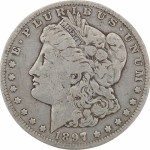This time of year also fills me with a number of conflicting emotions. As someone who was raised Catholic, I might be considered a metaphorical Christian by some. Nonetheless, I am very much Unitarian when it comes to my theological beliefs – a Pragmatic Believer of sorts – so Christmas holds no almost no religious significance to me. It does, however, hold a great deal of spiritual significance for me. I love Christmas for its glitter and lights, uplifting carols and delicious cookies, generosity and thanks-giving, time with family and friends, and its somewhat romantic nostalgia. But, the religious humanist in me cringes at the commercialization of the Christmas holiday and the general assumption that all who celebrate Christmas hold tight to Christian theology.
Throughout the entire month of December I find myself thinking: Where does this holiday fit into my faith and spiritual life? And where do I fit into the holiday?
I first heard the poem “Mary” by Philip Appleman at church a few years ago. I enjoy reading it every holiday season as I struggle with the many conflicting emotions and beliefs that I have about Christmas. Regardless of religious affiliation, I find the poem to be a universally powerful reminder of the importance of considering alternate perspectives and the role of the Pragmatic Believer.
Mary by Philip Appleman
Years later, it was, after everything
got hazy in my head – those buzzing flies,
the gossips, graybeards, hustling evangelists –
they wanted facts, they said,
but what they were really after,
was miracles.
Miracles, imagine! I was only a girl
when it happened, Joseph
acting edgy and claiming
it wasn’t his baby – – –
Anyway, years later
they wanted miracles, like the big-time cults
up in Rome and Athens, God
come down in a shower of coins,
a sexy swan, something like that.
But no, there was only
one wild-eyed man at our kitchen window
telling me I’m lucky.
And pregnant.
I said, “Talk sense mister, it’s got to be
the one thing or the other.”
No big swans, no golden coins
in that grubby mule-and-donkey village. Still,
they wanted miracles,
and what could I tell them? He
was my baby, after all, I washed
his little bum, was I
supposed to think I was wiping
God Almighty?
But they wanted miracles, kept after me
to come up with one: “This fellow at the window,
did he by any chance have wings?”
Wings! Do frogs have wings?
Do camels fly?
They thought it over. “Cherubim”, they said,
“may walk the earth like men
and work their wonders.”
I laughed in their hairy faces. No
cherub, that guy! But
they wouldn’t quit – fanatics, like
the gang he fell in with years ago’
all goading him till he began to believe
in quick cures and faith healing,
just like the cranks in Jerusalem, every
phony in town speaking in tongues
and handling snakes. Not exactly
what you’d want for your son, is it?
I tried to warn him, but he just says,
“I must be about my father’s business.”
“Fine,” I say, “I’ll buy you a new
hammer.” But nothing could stop him, already
hooked on the crowds, the hosannas,
the thrill of needling the bureaucrats.
Holier than thou, he got, roughing up
the rabbis even. Every night
I cried myself to sleep – my son,
my baby boy – – –
You know how it all turned out, the crunch
of those awful spikes,
the spear in his side, the whole town watching,
home-town folks come down from Nazareth
with a strange gleam in their eyes. Then later on
the grave robbers, the hucksters, the imposters all
claiming to be him. I was sick
for a year, his bloody image
blurring the sunlight.
And now they want miracles, God
at my maidenhead, sex without sin.
“Go home,” I tell them, “back to your libraries,
read about your fancy Greeks,
and come up with something amazing, if you must.”
Me, I’m just a small-town woman,
a carpenter’s wife, Jewish mother, nothing
special. But listen,
whenever I told my baby a fairy tale,
I let him know it was a fairy tale.
Go, all of you, and do likewise.















